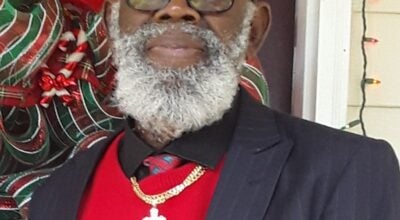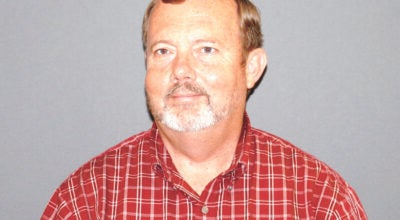Brother to brother, slavery no more
Published 2:20 pm Friday, February 18, 2011
This month of February is recognized as Black History Month.
We all need to look back and see where the Lord has brought us from. We could never thank him enough for bringing us from a mighty long way. We could not have made it without the Lord.
As we look back over different Scriptures of the Bible, God has not only been good to one race, but to all. He wants us to love one another and live in peace, love and harmony. We serve a wonderful God and his love for us extends farther than the deepest sea.
As we look back into history and read the Book of Genesis, we will see that slavery was in existence back then.
Joseph was sold into slavery by his brothers. He was one of the younger sons of Jacob, and his mother was Rachel.
Four-hundred years had passed since Joseph moved his family to Egypt. The descendants of Abraham had now grown to more than 2 million strong. To Egypt’s new Pharaoh, those Hebrews were foreigners and their numbers were frightening. Pharaoh decided to make them slaves so they would not upset his balance of power. As it turned out, that was his biggest mistake because God came to the rescue of his people. Through a strange series of events, a Hebrew boy name Moses was chosen by God as a deliverer to God’s people, who were in slavery. As God led Moses and the nation of Israel out of slavery, today He wants to lead us as well out of sin and deliver us.
Is the Lord preparing you for a special task?
He will be with you; obey and follow him. Is he delivering you from an enemy or a temptation?
Trust him and do what he says. Read, study and pray and let God guide you. Moses could not have done this without God’s guidance. We need God to guide us also.
As we continue on in the Bible, we can see that slavery was still present. As we read the Book of Philemon, the author is Paul. The purpose was to convince Philemon to forgive his runaway slave, Onesimus, and to accept him as a brother and no longer a slave. Onesimus belonged to Philemon, a member of the Colossian church, Paul’s friend and a wealthy man. But Onesimus, the slave had stolen from his master and ran away. He ran to Rome where he met Paul and there he responded to the good news and came to faith in Christ. So Paul wrote to Philemon and reintroduced Onesimus to him, not as a slave but as a brother (Philemon Chapter 1:11-16).
The barriers of the past and the new ones erected by Onesimus’ desertion and theft should divide them no longer. They are one in Christ. This small book is a master piece of grace and a profound demonstration of the power of Christ and of true Christian fellowship in action.
As we live today, what barriers are in our homes, neighborhoods, churches and jobs?
What separates us from fellow believers?
Is it race, status, wealth, education or personality?
As with Philemon, God calls us to seek unity, peace and harmony breaking down the walls and embracing our brothers in Christ. Paul is pleading on behalf of Onesimus, a runaway slave. Paul’s intercession for him illustrates what Christ has done for us. As Paul interceded, so Christ interceded for us as slaves to sin. As Onesimus is reconciled to Philemon, so we are reconciled to God through Jesus Christ.
As Paul offered to pay the debt of a slave, Christ paid our debt for sin.
Like Onesimus, we must return to God, our Master and serve Him. Slavery was a barrier between people, but Christ love and fellowship are to overcome such barriers. When dealing with people, remember to exhibit courtesy, love, humility and respect in your relations.
God does not like racism, mistreatment, disrespect and injustice for his people. We all are going to stand before a God one day and will be judged according to our deeds. Remember God is sitting high and looking down on us, as we live in this world. We cannot get to heaven if we cannot get alone down here.
When Jesus went to Calvary, he did not go for one race or a select group of people. He went to die for the entire world.
How can we love God, who we have never seen and hate our brother?
As we reflect on Black History Month, we as a people should never forget where the Lord has brought us from. He brought some us from the cotton fields, tobacco fields and the peanut fields. For me and some others, he brought us from the strawberry fields, orange groves, and bean and pea fields of Plant City and other cities in Florida. He even brought us from the outhouses to indoor restrooms, from kerosene lamps to electricity. God is good and we cannot thank and serve Him enough. As we continue to live in God’s wonderful world, let us live as brother to brother and no more slavery, slavery to sin.
Closing Prayer: “Thank you Lord for Jesus and the wonderful opportunity to share in your grace of Salvation.”
The Rev. Adren Bivins Sr., a clergy, is the founder of Laymen Brotherhood Second Chance Outreach Center Inc., a non-profit Bainbridge organization. He can be reached by calling (229) 465-3752 or 416-0476.



